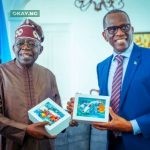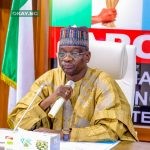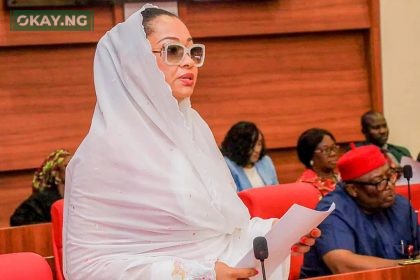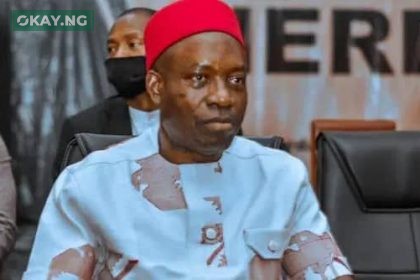A provisional court order was issued on Sunday to prevent Sudan’s President Omar al-Bashir from leaving South Africa where he had been attending the African Union (AU) summit. This provision catapulted South Africa into the heat of the international news media’s spotlight.
Regardless of the effectiveness of this court order, the situation entwines South Africa, the AU, and the International Criminal Court (ICC) in a legal squabble, and a political and diplomatic controversy. Most crucially, as the Sudanese president was not arrested and handed over to The Hague, once again the ICC has come out looking like a toothless entity embroiled in political wrangling. It has further diminished its international image as an independent global body fighting the good fight.
Impaled upon the horns of a dilemma, South Africa had to choose between two diametrically opposed duties: Its obligation as an AU member state to support its fellow member state Sudan; or its role as a state party to the ICC with a duty to arrest and hand over Bashir.
It appeared to have opted for the former when reports emerged on Monday afternoon that Bashir’s plane had left South Africa.
ICC in Africa
Respecting its responsibilities to the ICC by arresting Bashir would have meant a total violation of the AU’s repeated decisions of non-cooperation with the ICC on any cases related to Kenyan and Sudanese leaders.
In October 2013, an extraordinary AU summit was called to deliberate the role of the ICC within Africa. The member states agreed to fight the ICC, and its global influence, through diplomatic channels by appealing to the United Nations Security Council. They chose to limit the ICC’s mandate to take cases on any sitting heads of state and senior officials of governments across Africa.
To do this, they expanded the powers of a unified African court and called on countries to individually withdraw from the Rome Statute, which established the ICC.
Respecting its responsibilities to the ICC by arresting Bashir would mean a total violation of the AU’s repeated decisions of non-cooperation with the ICC on any cases related to Kenyan and Sudanese leaders.
By honouring this AU decision, South Africa directly disregards its duties to the ICC, to the global community, and to its own judiciary’s decision that issued the court order, which restricts Bashir’s travel.
In doing so, South Africa faces a double-edged sword. As a country with democratic constitutionalism that respects the separation of state powers, including the independence of the judiciary, South Africa is expected to execute and enforce any decisions handed down by its courts.
Having failed to do so, the South African government will probably find itself entrenched in a domestic political dispute that may have far reaching consequences for the independence of its judiciary, and the overall stability of the country.
Systemic Failure
On the other hand, by honouring the wishes of the ICC, South Africa would have avoided another international diplomatic crisis in the pan-African landscape after the recent condemnation following an array of attacks on African migrants within its borders.
Indicative of a systemic failure to learn from the similar xenophobic attacks on African migrants in 2008, the 2015 attacks have been dubbed as “Afrophobia.”
Furthermore, various diplomatic missteps on African crises such as those in the Ivory Coast, Libya, Somalia, Eritrea etc, have left African countries to consider South African foreign policy as inconsistent and unpredictable at best.
Within the political climate and culture of the AU, South Africa’s cooperation with the ICC on Bashir’s case, would, for some, have been seen as tantamount to the betrayal of pan-Africanism. And, it could have been seen as serving the perceived neoliberal colonialist enemies of modern Africa and its sovereignty.
A major issue surrounding the ICC stems not from questions of whether or not it should prosecute African leaders, but rather why it seems to prosecute African leaders exclusively.
The questions surrounding Africa’s relationship with the ICC and wider global community seem endless: Are Africans the only ones committing crimes proscribed by the Rome Statute? Should the UNSC enjoy the privilege to refer and defer powers as it does now? Did this privilege of referral and deferral of powers politicise the ICC’s judicial role and lead to the application of a double standard?
The AU and its proponents argue that there is an unholy alliance between the ICC and the UNSC, where the UNSC is not publicly considered as a just institution. The UNSC’s referral and deferral power reduces the higher ideal of international justice to the diminished reality of a selective justice wielded by the powerful over the powerless.
Quintessential Problem
These powers of the UNSC bring the quintessential problem of international politics to the ICC; that political power will always determine the fate of those being indicted. Another issue of contention lies within the concepts of impunity and how it relates to the immunity of officials of non-state parties to the ICC.
The ICC argues that the immunity of all persons it decides to indict can be suspended when the court chooses to exercise its jurisdiction on officials of state parties, and even non-state parties, due to the binding nature of the UNSC decisions.
Thus, South Africa’s President Jacob Zuma was faced with two choices that would yield equally undesirable results. However, there was a possible third action. Zuma could have used his presidential powers, or a prior agreement with the AU or Sudan, that bestows total immunity to the delegates of the AU Summit as required by the hosting agreements, the AU decisions on the ICC, and could be based upon international conventions of diplomatic immunity.
Threatening the very foundations of the ICC, the indictments of presidents and the absence of actual arrests have raised patriotic sentiments that were misused in election campaigns in both Kenya and Sudan. What is more, the deterrent effect of the ICC and its indictments in Africa could be effective, not against those already indicted but against those who might have the power to commit crimes as newly elected or appointed leaders.
Regardless of Zuma’s decision to let Bashir leave the country, the current dilemma will not be limited to South Africa. It will complicate the already tumultuous relationship between the ICC and the AU and the intense debate surrounding ICC’s place in Africa.
Mehari Taddele Maru is a specialist in international human rights and humanitarian law, an international consultant on African Union affairs, and an expert in public administration and management.











